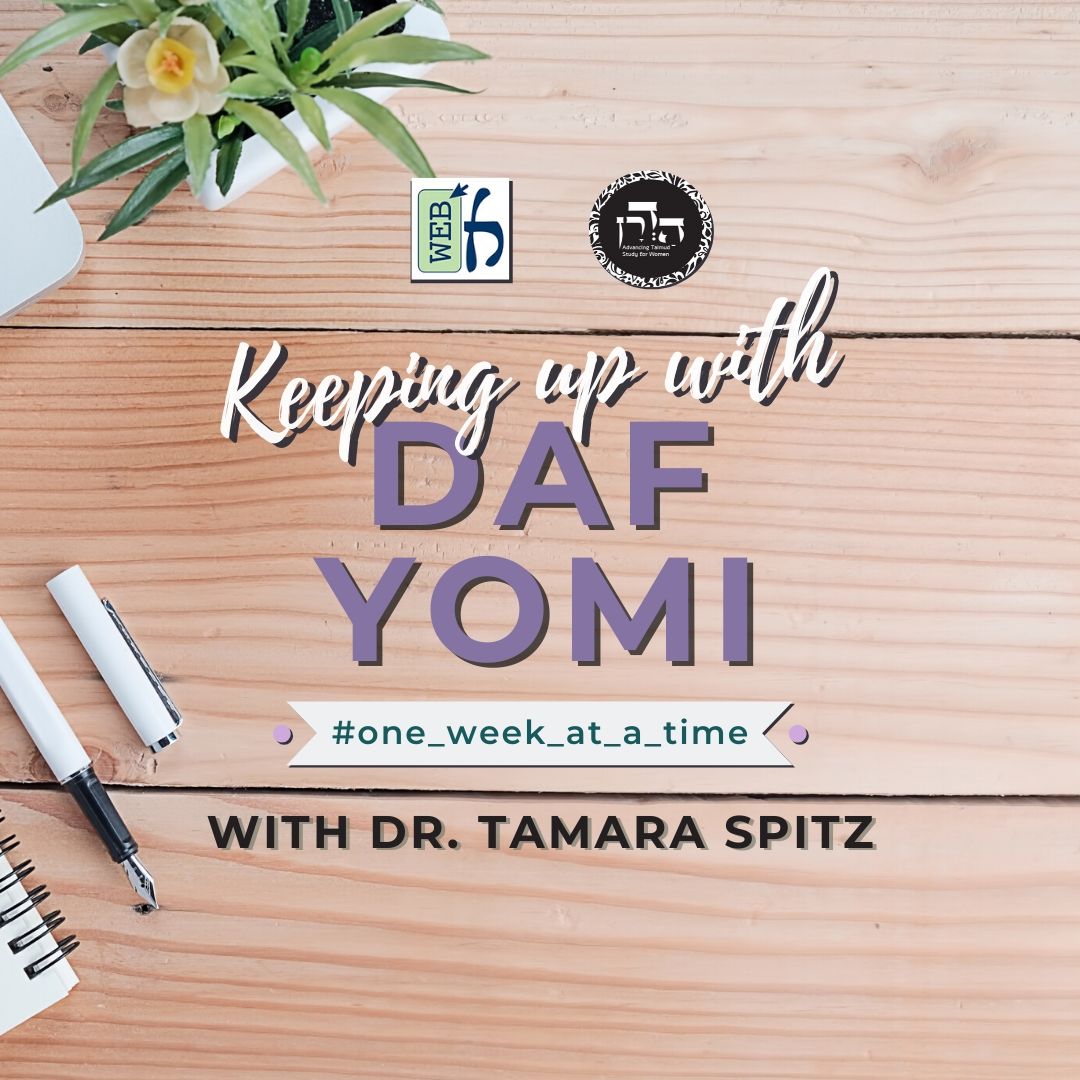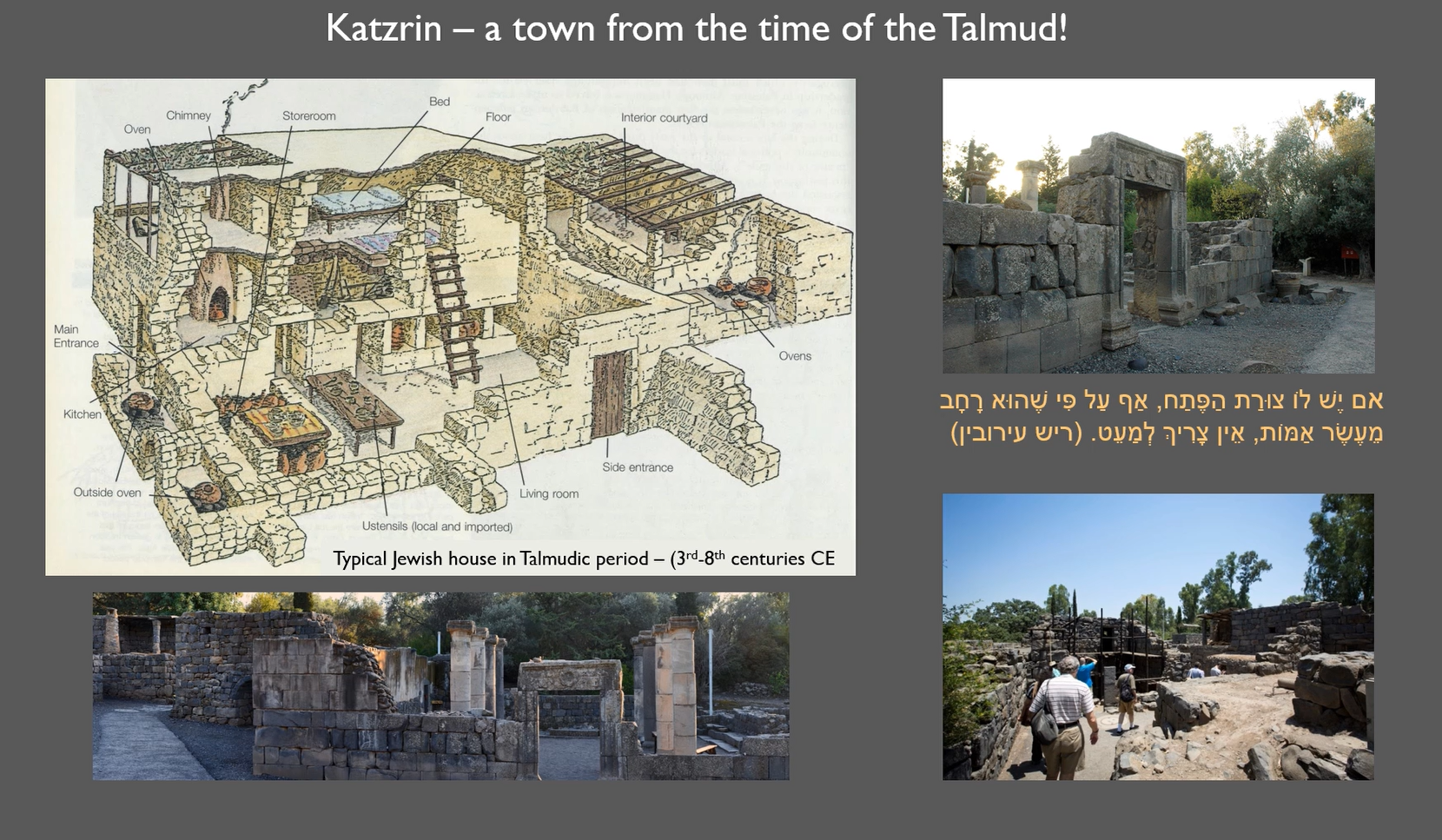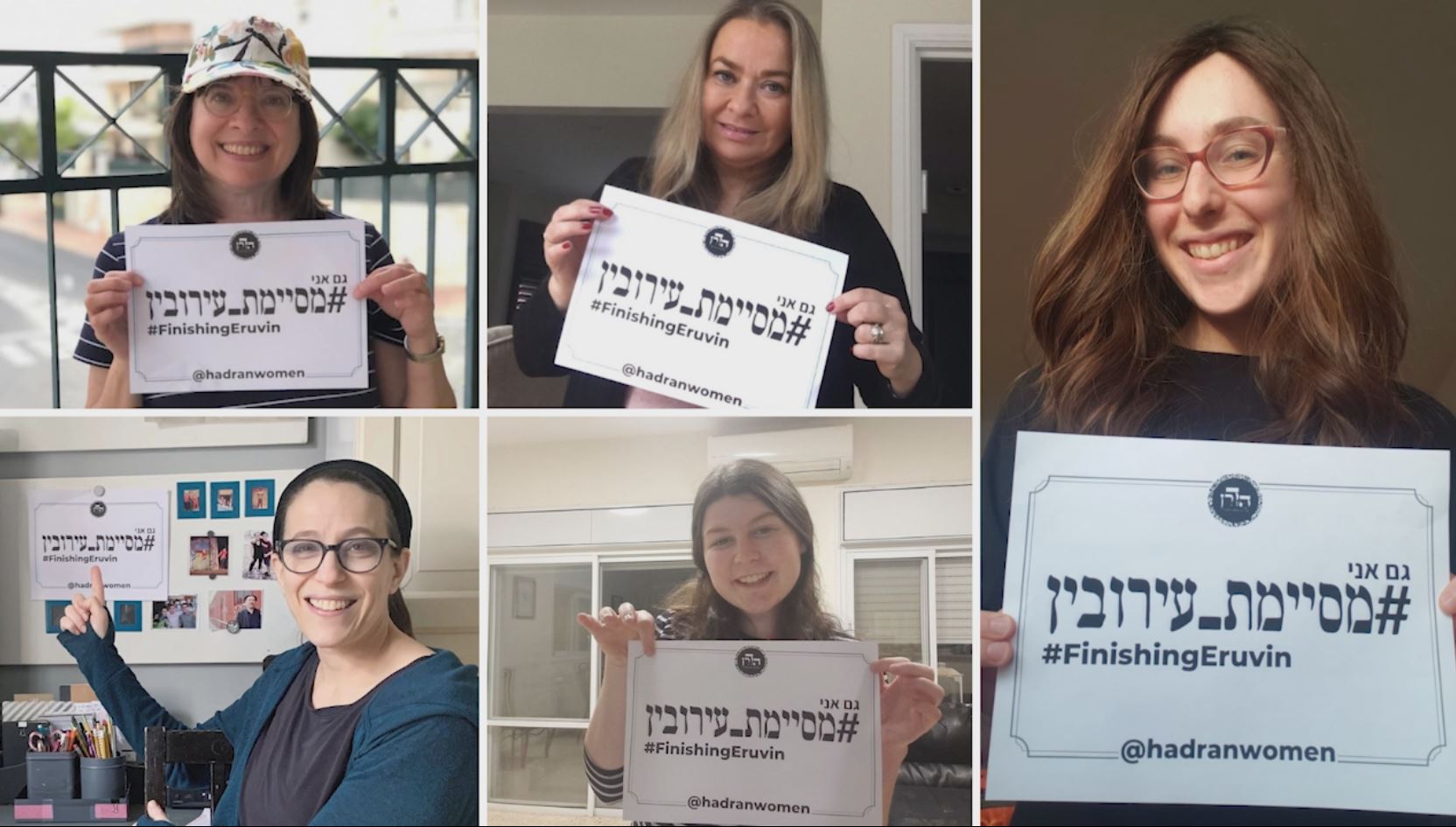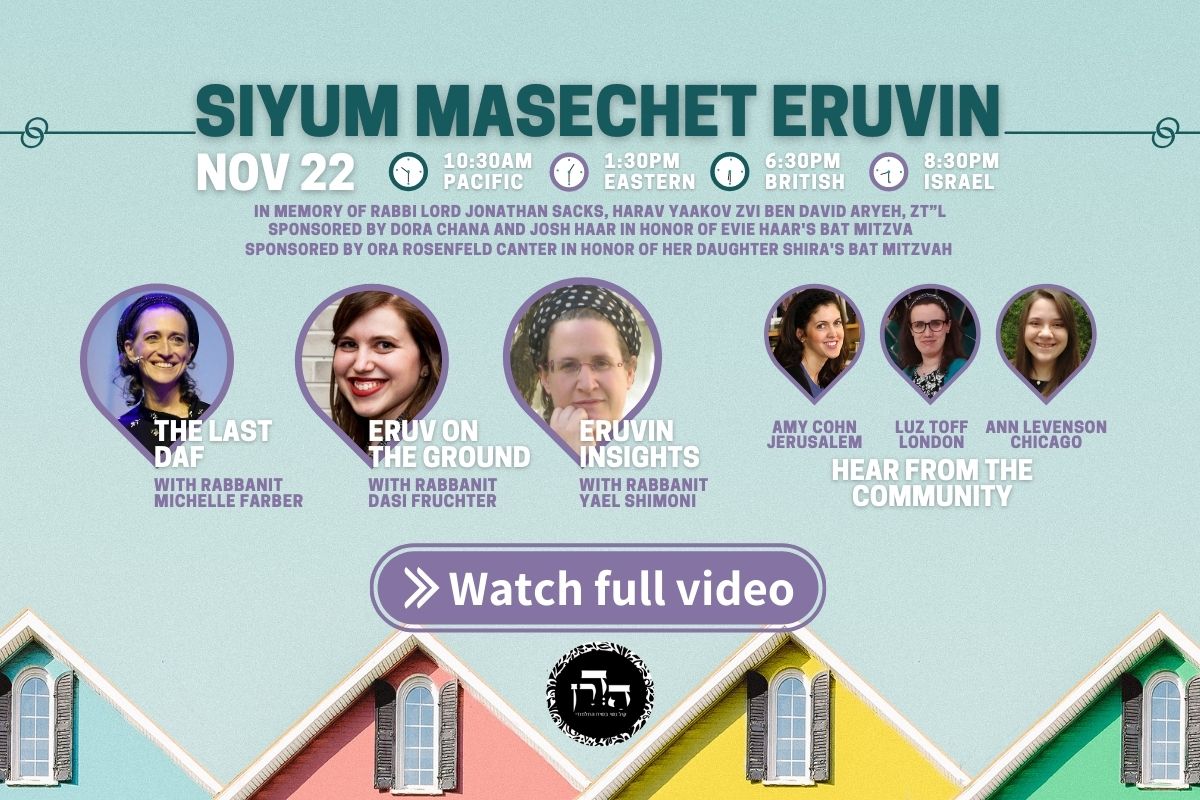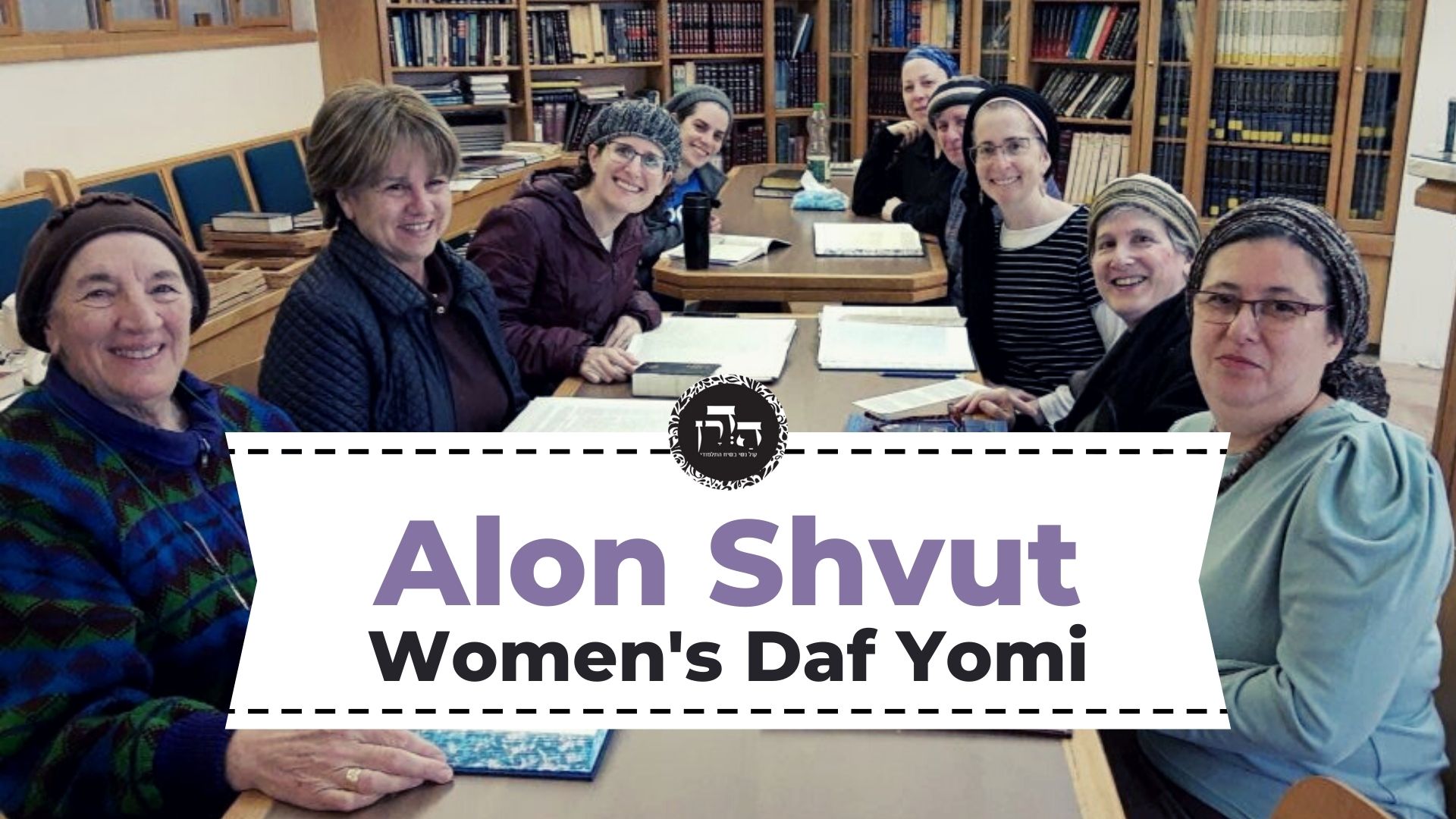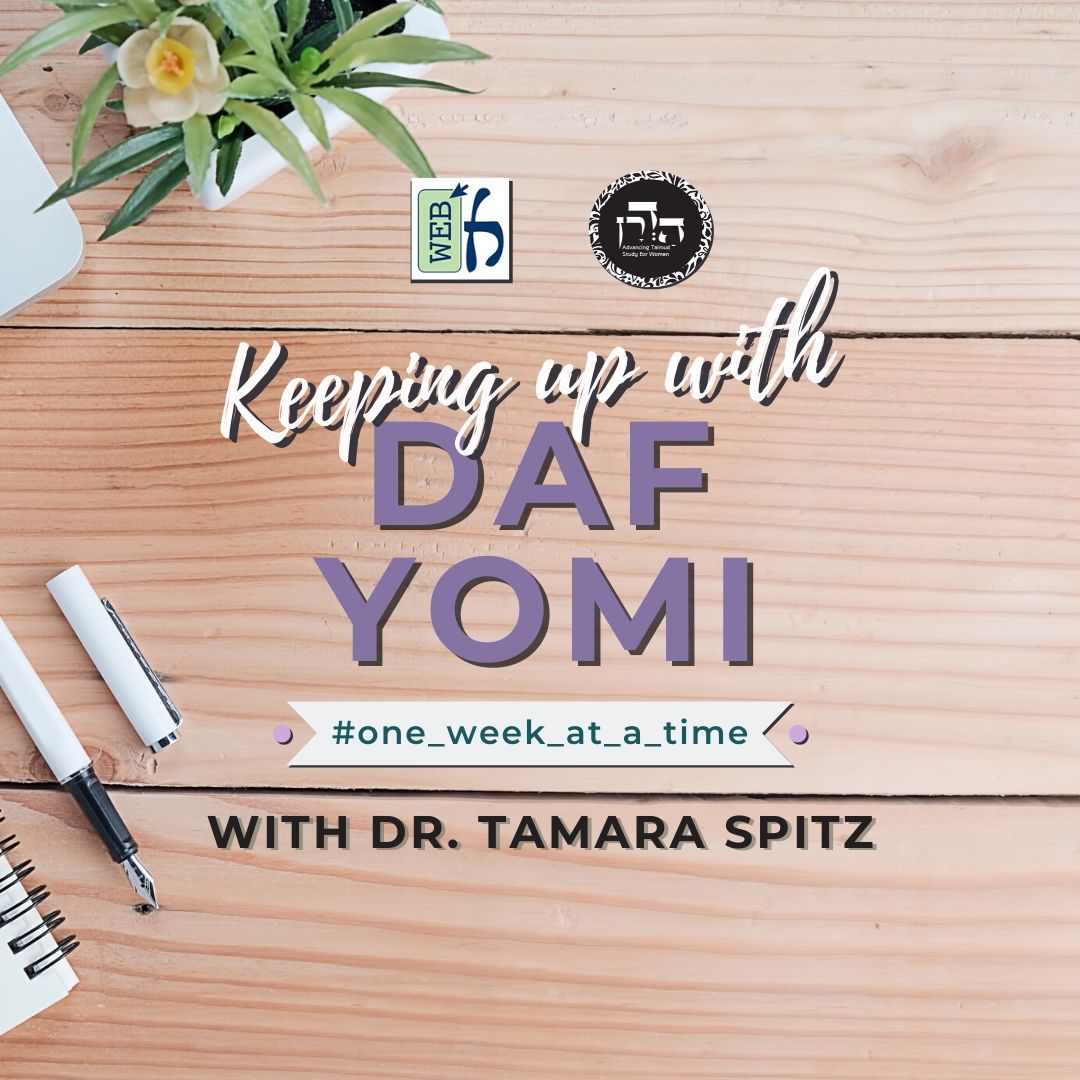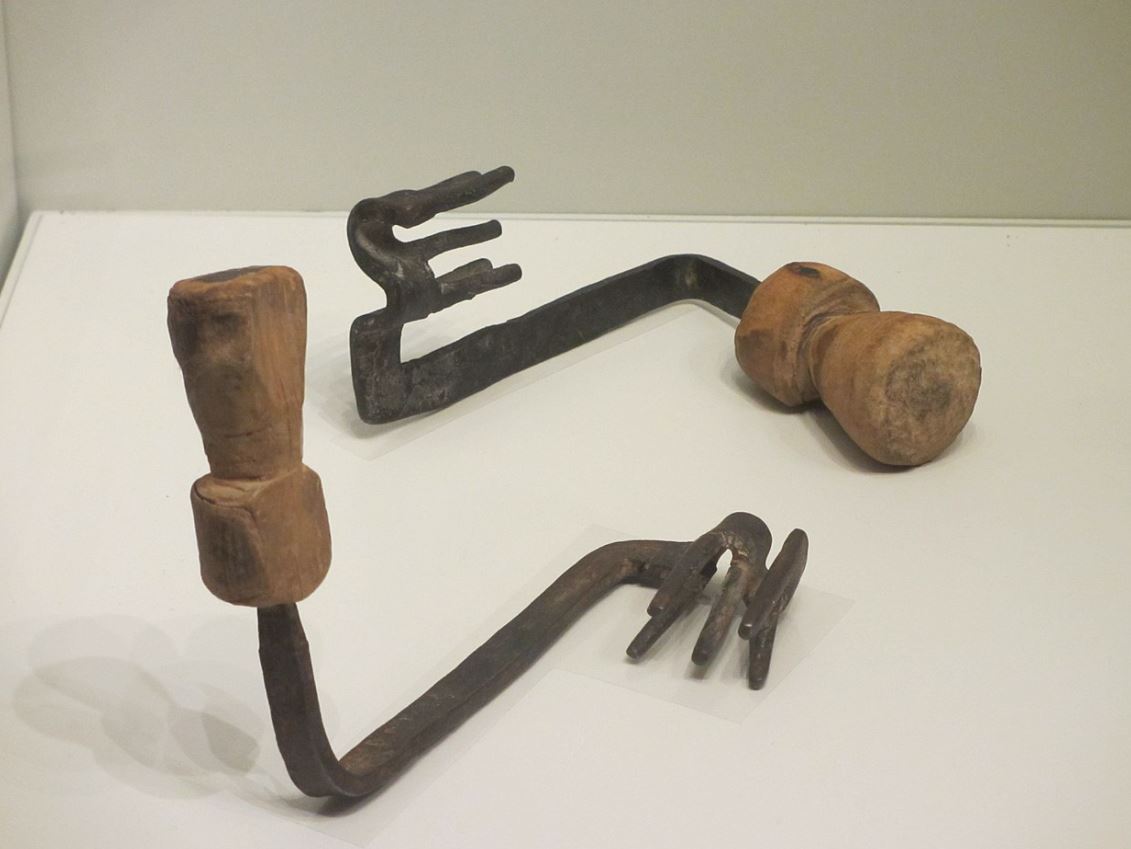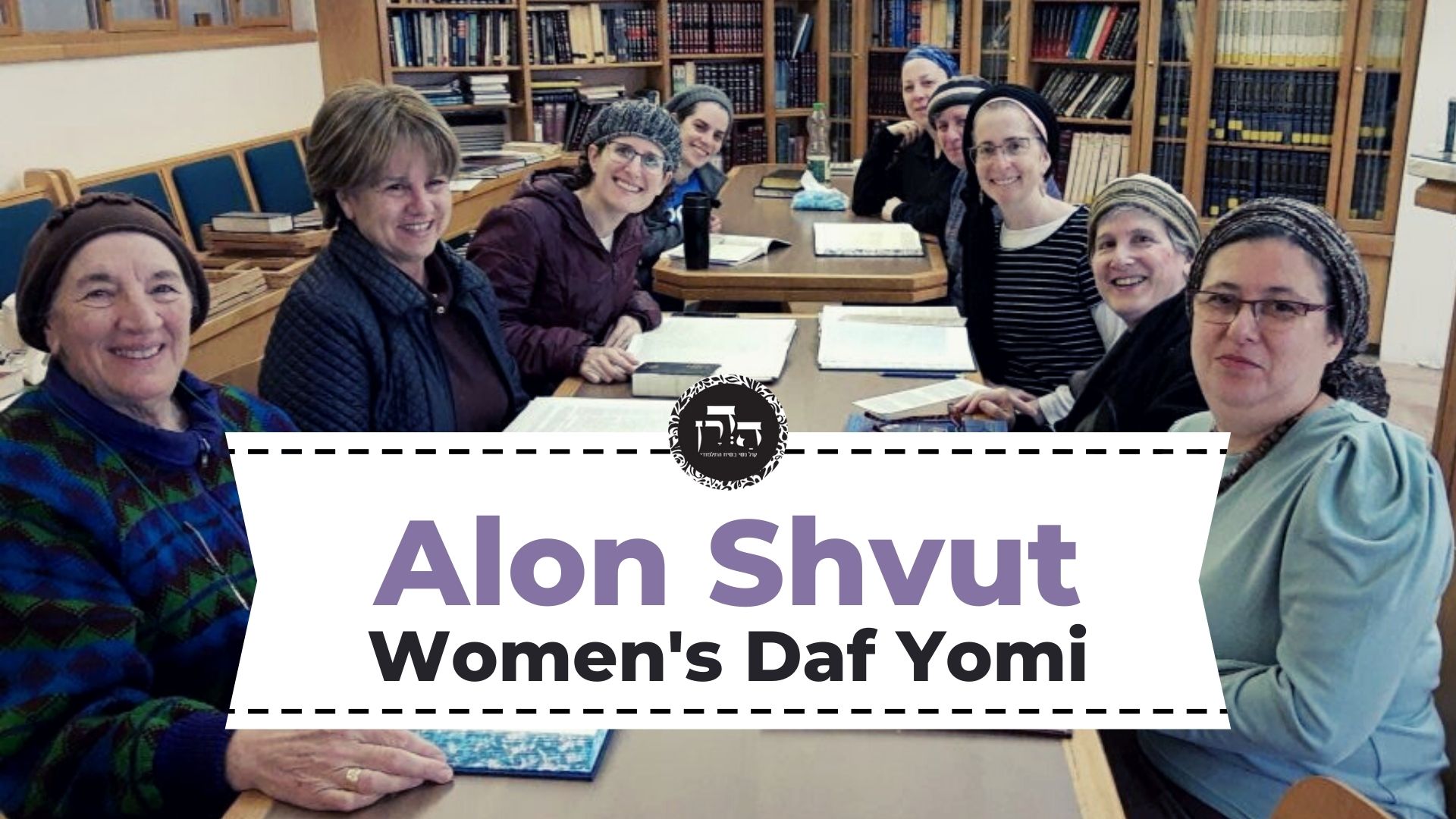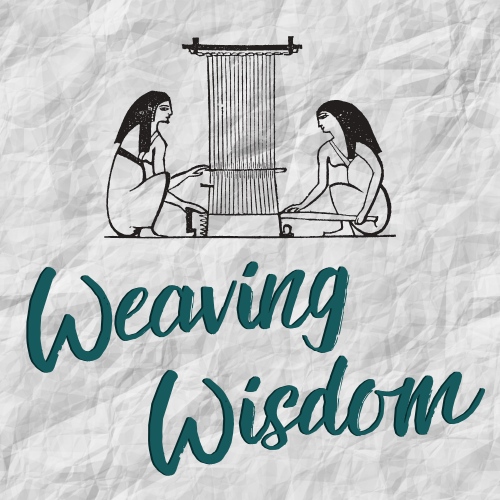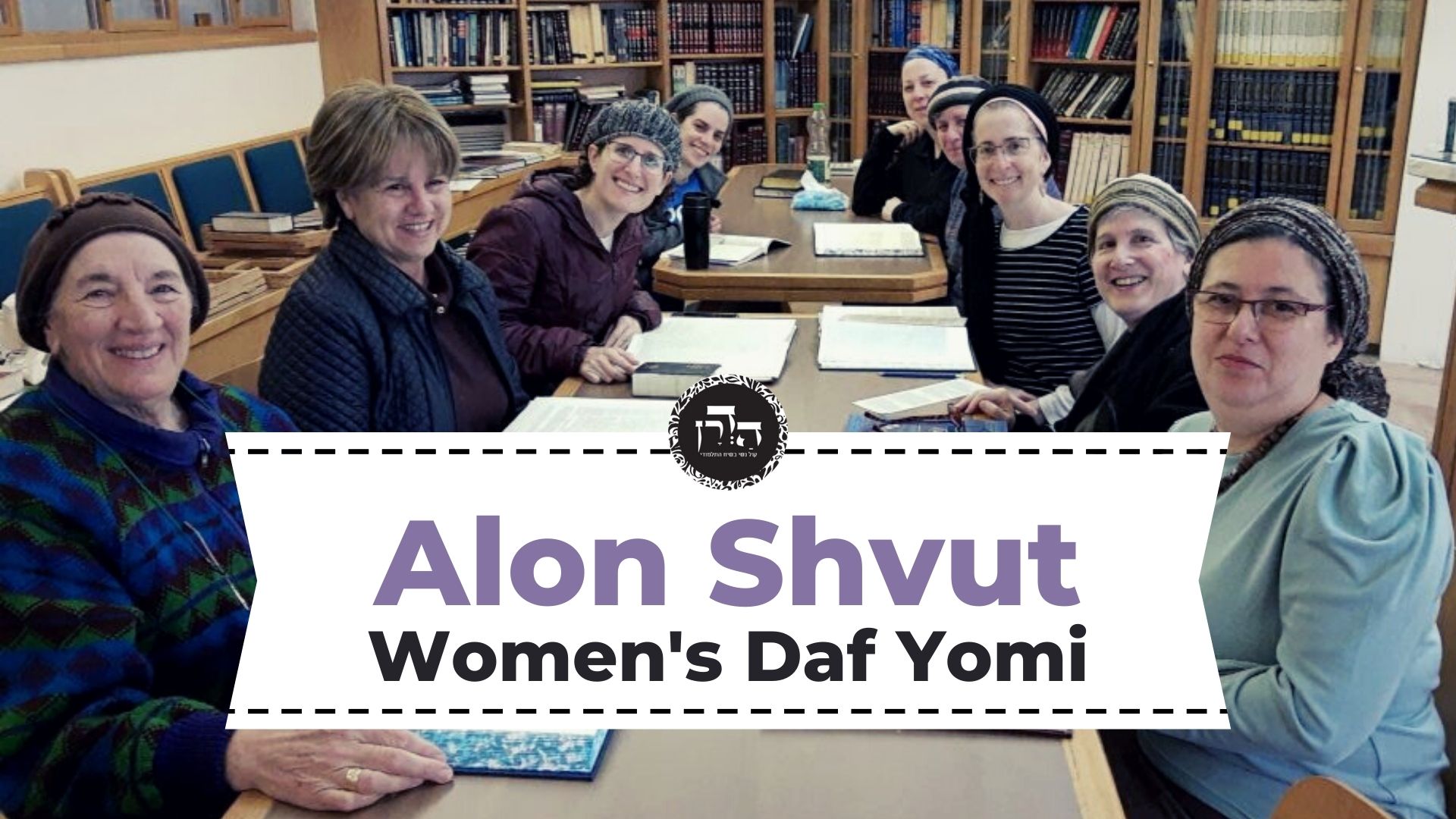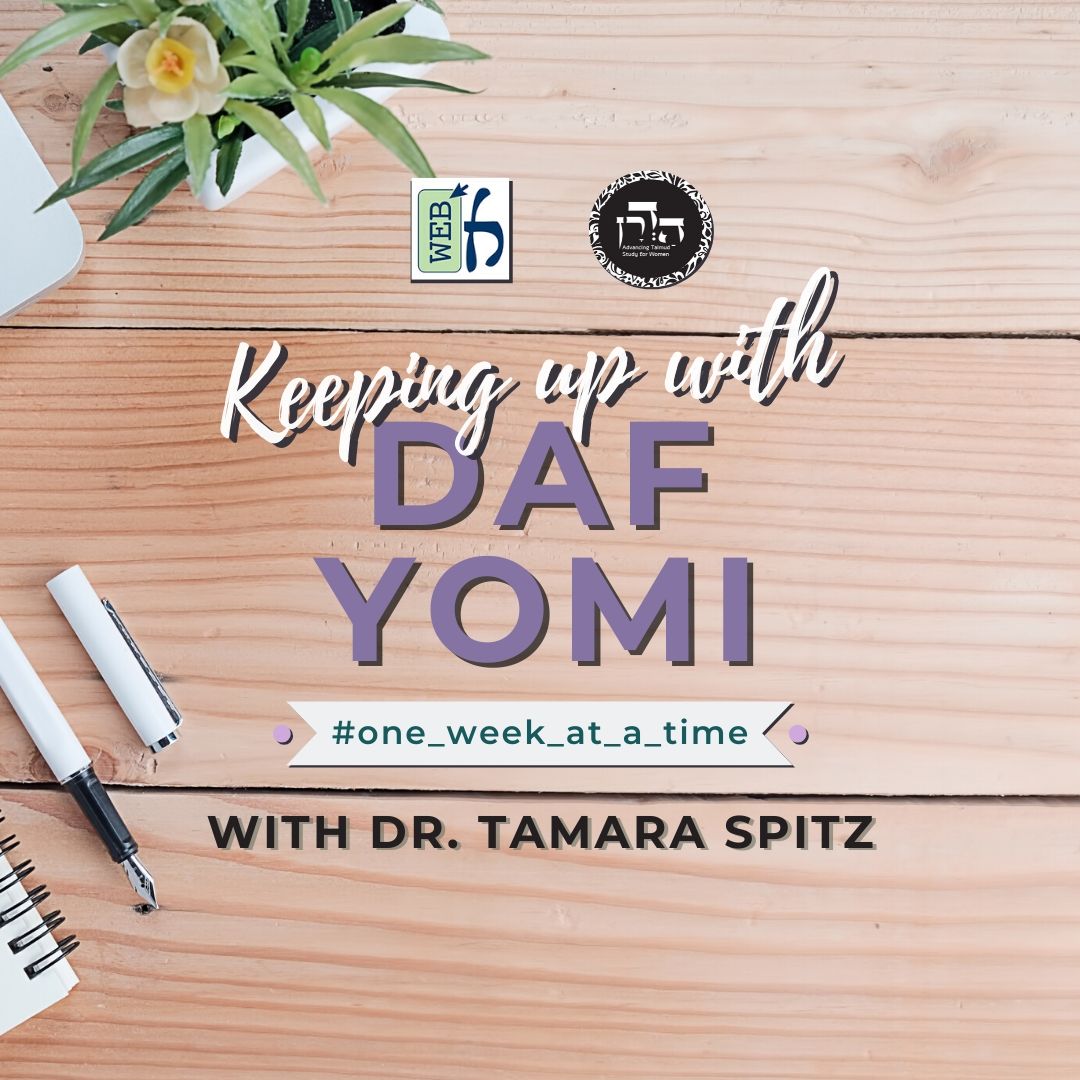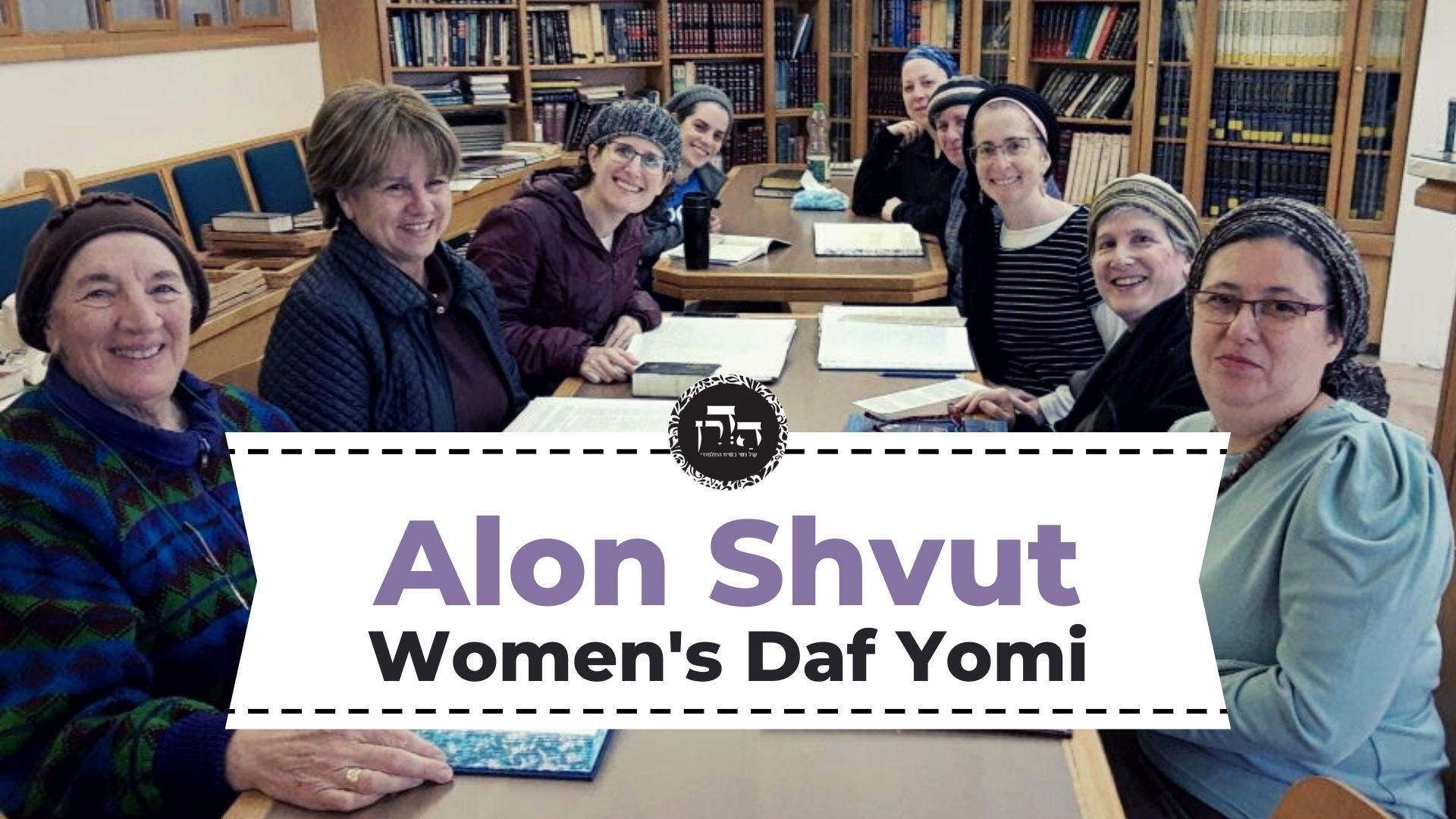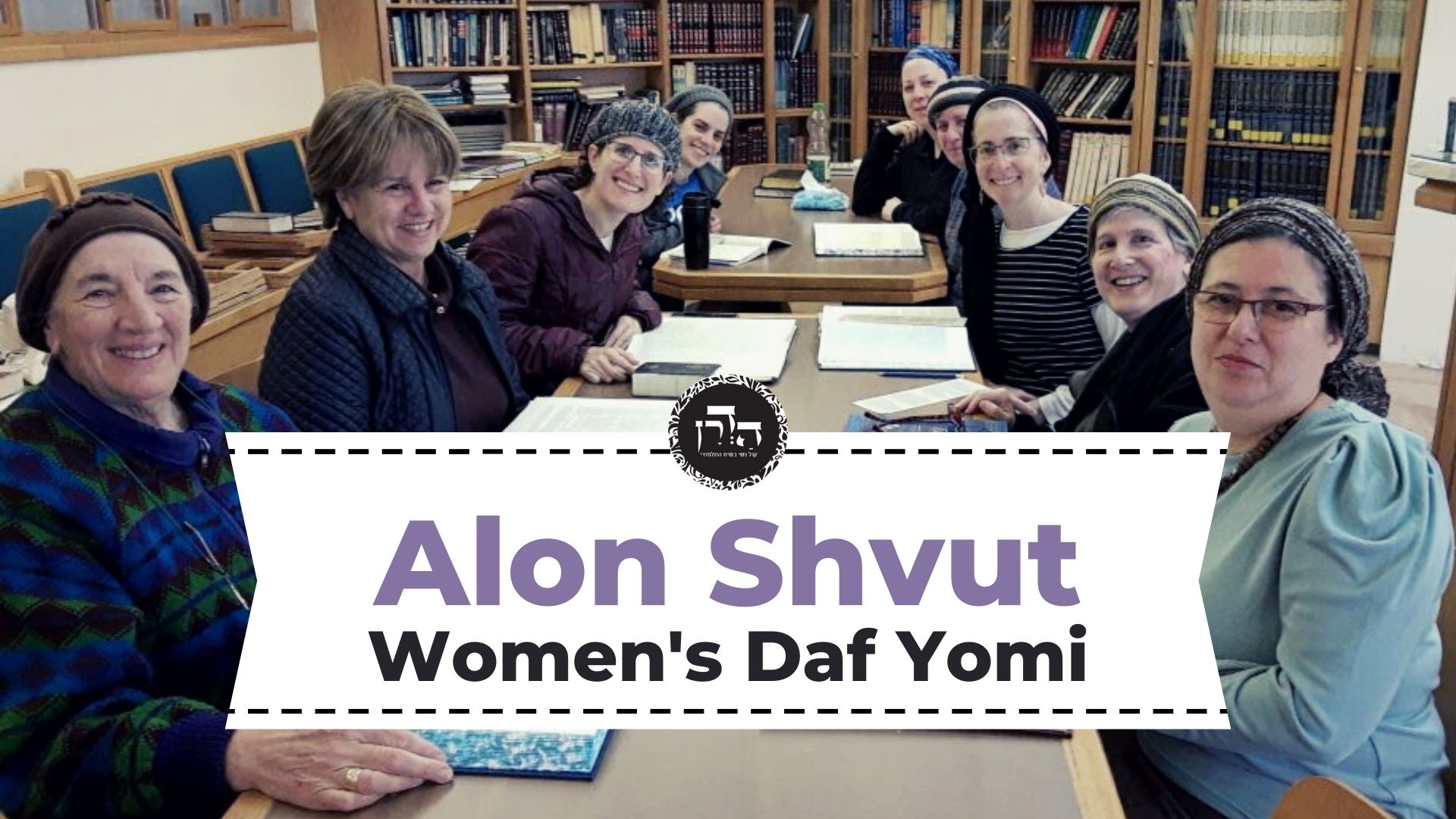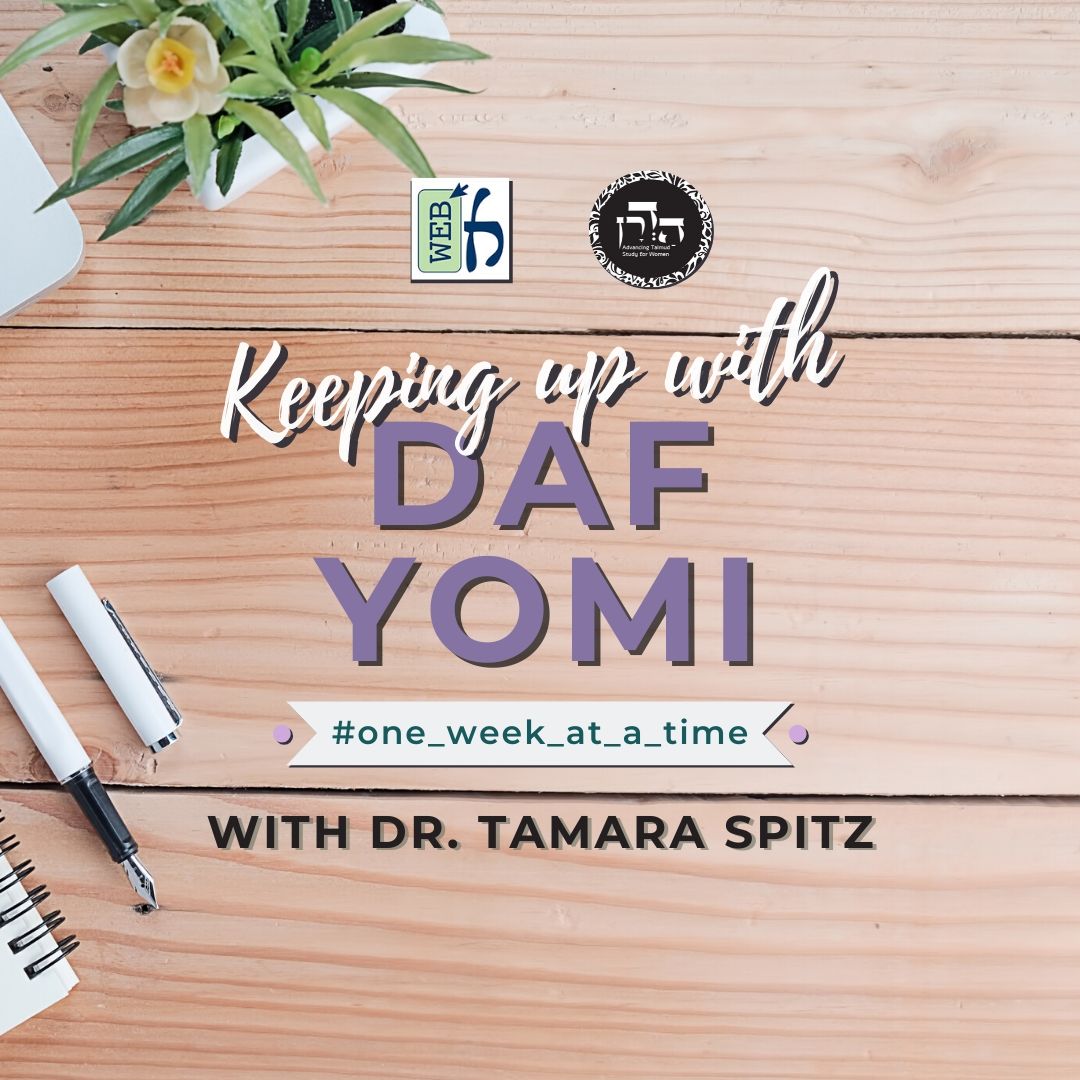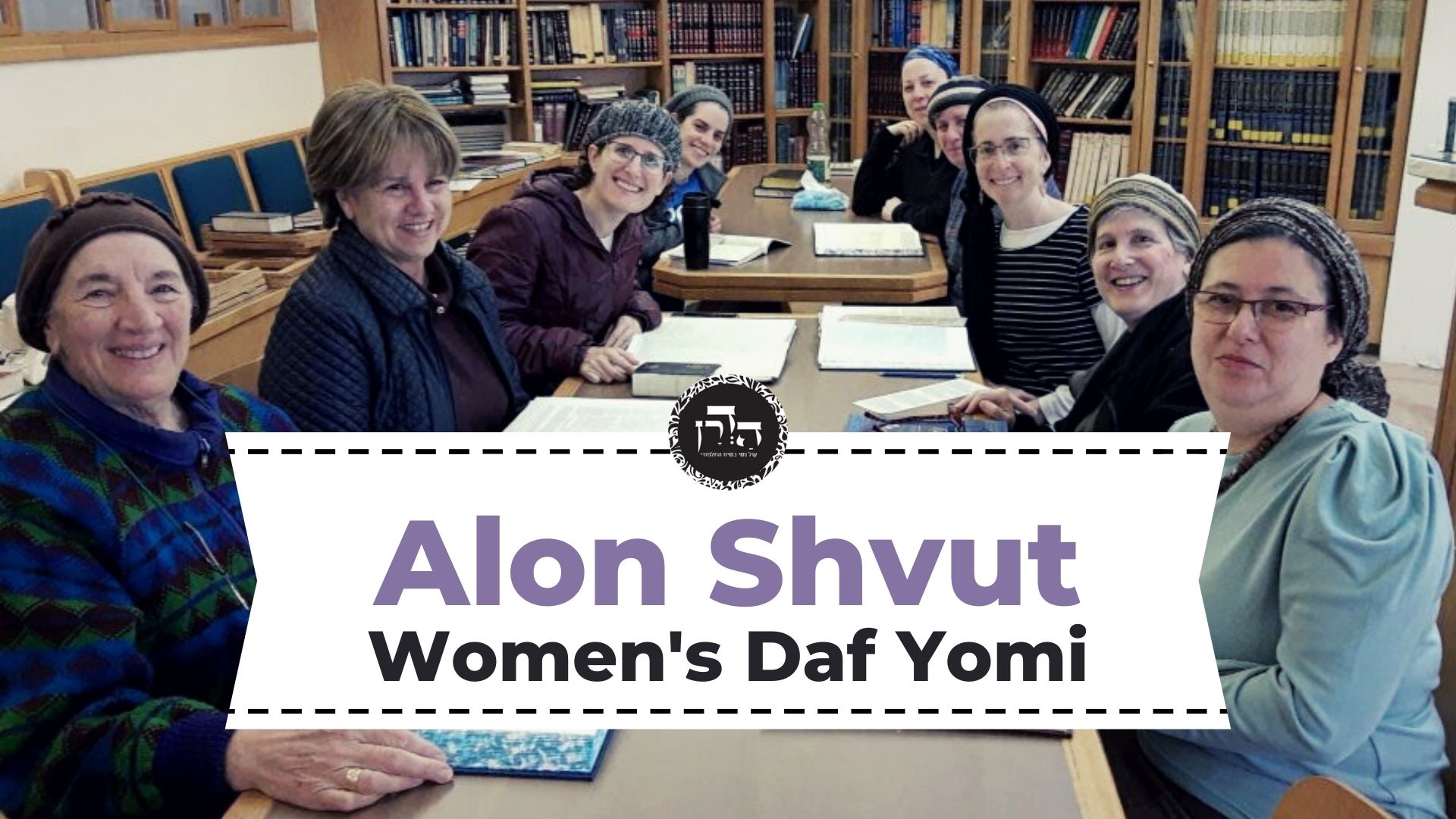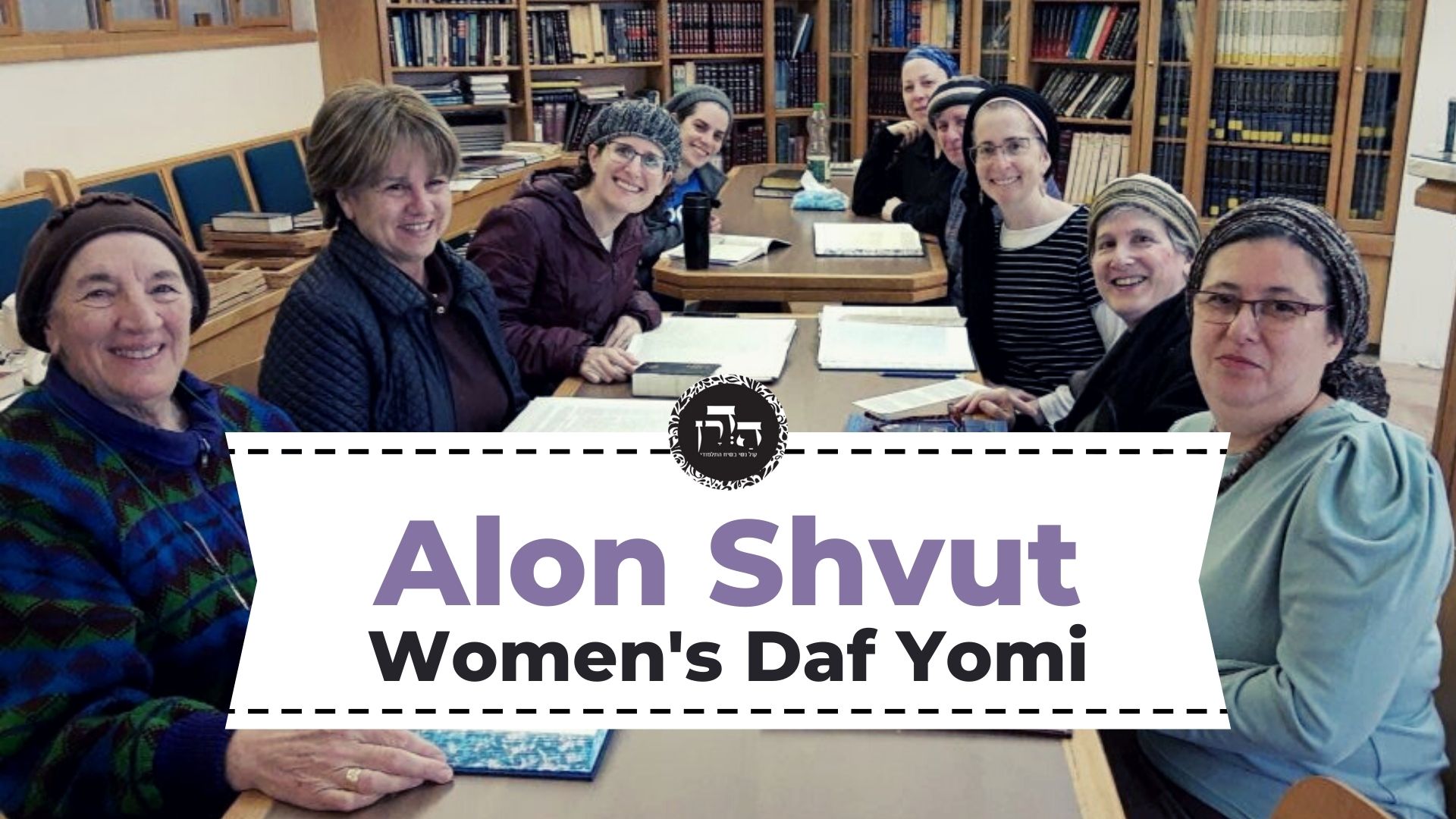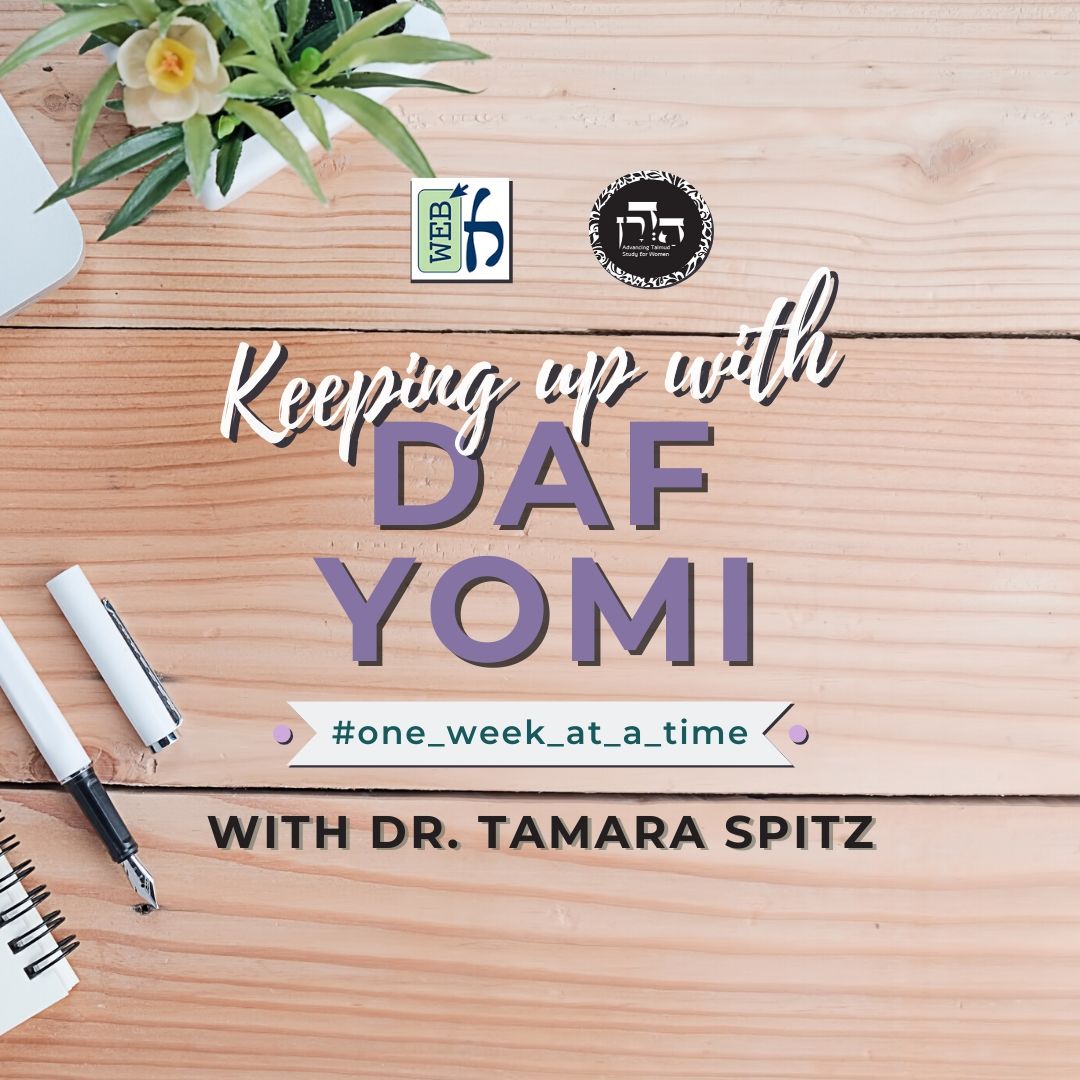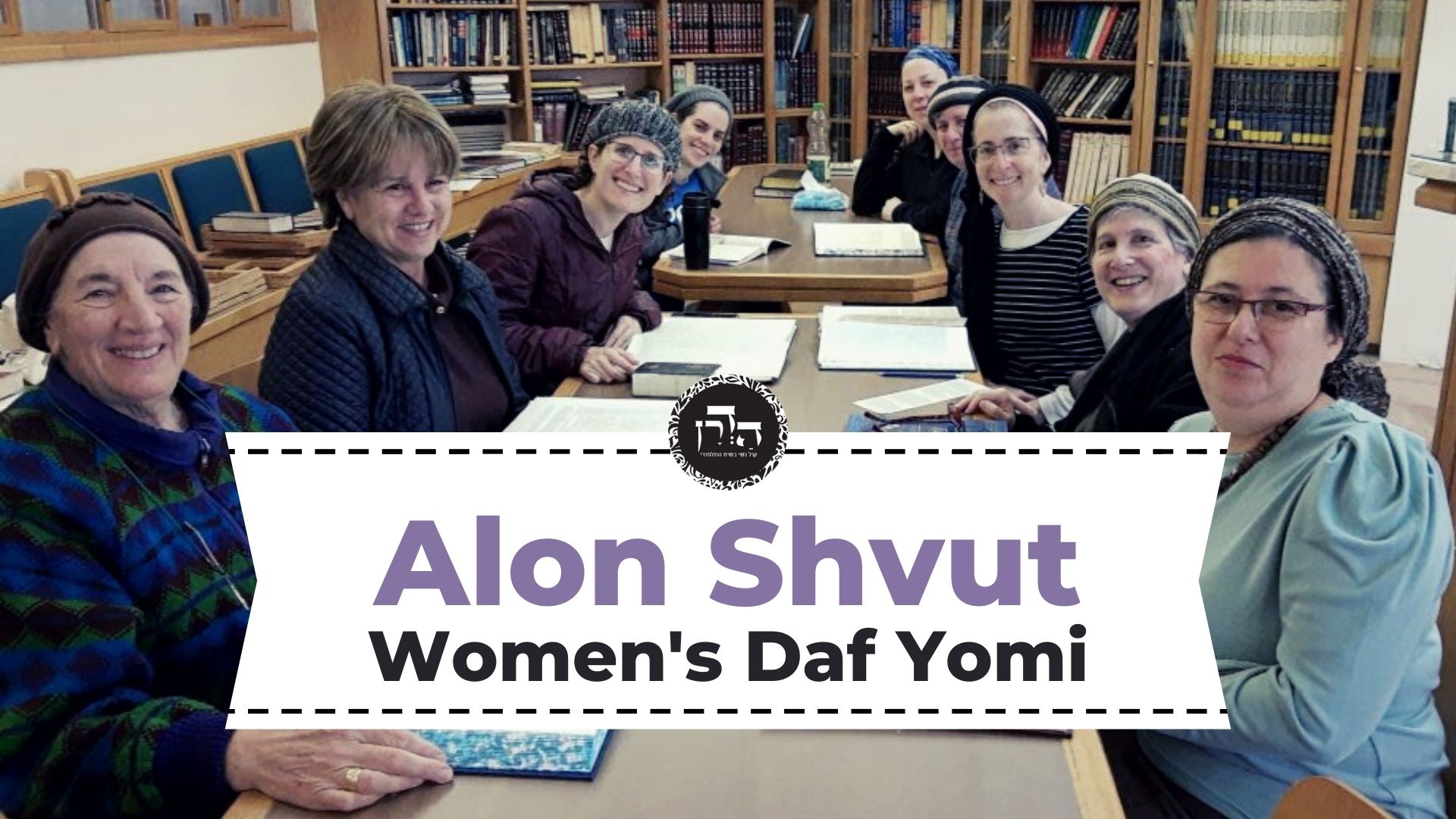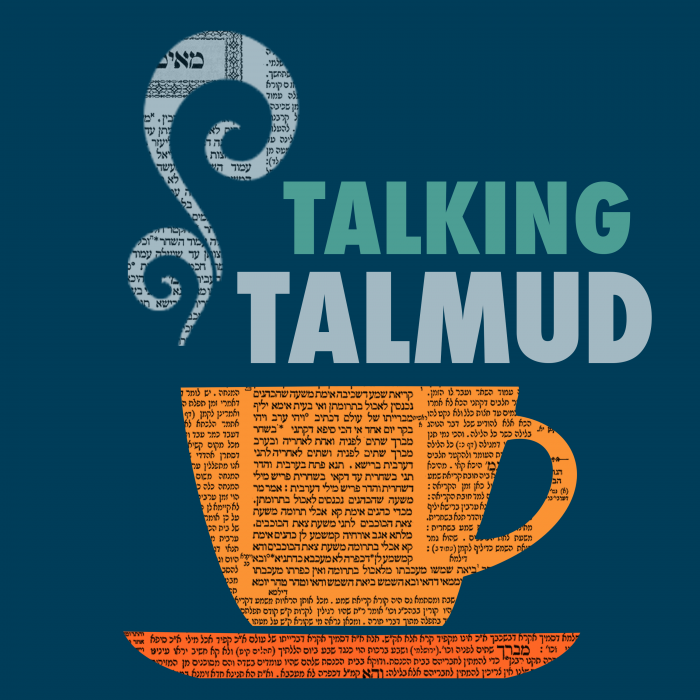Eruvin 81
גְּמָ׳ תְּנֵינָא חֲדָא זִימְנָא: בַּכֹּל מְעָרְבִין וּמִשְׁתַּתְּפִין, חוּץ מִן הַמַּיִם וְהַמֶּלַח!
GEMARA: With regard to the mishna’s ruling concerning the foods which may or may not be used for an eiruv and to merge alleyways, the Gemara poses a question: This ruling is apparently superfluous, as we have already learned it once before in another mishna: One may establish an eiruv and a merging of alleyways with all kinds of food, except for water and salt.
אָמַר רַבָּה: לְאַפּוֹקֵי מִדְּרַבִּי יְהוֹשֻׁעַ, דְּאָמַר: כִּכָּר — אִין, מִידֵּי אַחֲרִינָא — לָא, קָמַשְׁמַע לַן ״בַּכֹּל״.
Rabba said: This addition comes to exclude the opinion of Rabbi Yehoshua in the mishna, who said that a loaf, yes, it may be used for an eiruv; but anything else, no, other foods may not be used. Therefore, the mishna teaches us that an eiruv may be established with all kinds of food, not only bread.
אֵיתִיבֵיהּ אַבָּיֵי: בַּכֹּל מְעָרְבִין עֵירוּבֵי חֲצֵירוֹת וּבַכֹּל מִשְׁתַּתְּפִין שִׁיתּוּפֵי מְבוֹאוֹת, וְלֹא אָמְרוּ לְעָרֵב בְּפַת אֶלָּא בֶּחָצֵר בִּלְבַד. מַאן שָׁמְעַתְּ לֵיהּ דְּאָמַר פַּת — אִין, מִידֵּי אַחֲרִינָא — לָא, רַבִּי יְהוֹשֻׁעַ, וְקָתָנֵי ״בַּכֹּל״!
Abaye raised an objection from a baraita: One may establish a joining of courtyards with all kinds of food, and likewise one may establish a merging of alleyways with all kinds of food. They said that one must establish an eiruv with bread only with regard to an eiruv of a courtyard. Who did you hear that said that bread, yes, it may be used for an eiruv, but anything else, no, it may not be used? It was Rabbi Yehoshua, and yet the baraita teaches: With all kinds of food. This proves that the phrase: One may establish an eiruv with all kinds of food, does not necessarily exclude Rabbi Yehoshua’s opinion.
אֶלָּא אָמַר רַבָּה בַּר בַּר חָנָה: לְאַפּוֹקֵי מִדְּרַבִּי יְהוֹשֻׁעַ, דְּאָמַר שְׁלֵימָה — אִין, פְּרוּסָה — לָא, קָמַשְׁמַע לַן ״בַּכֹּל״.
Rather, Rabba bar bar Ḥana said: It comes to exclude a different aspect of the opinion of Rabbi Yehoshua, as Rabbi Yehoshua said: A whole loaf, yes, it is fit to be used as an eiruv, but a broken loaf, no, it is not suitable for this purpose. The mishna therefore teaches us that one may prepare an eiruv with all kinds of bread, even a broken loaf.
וּפְרוּסָה מַאי טַעְמָא לָא? אָמַר רַבִּי יוֹסֵי בֶּן שָׁאוּל אָמַר רַבִּי: מִשּׁוּם אֵיבָה.
The Gemara analyzes Rabbi Yehoshua’s position itself: And with regard to a broken loaf of bread, what is the reason that it may not be used for an eiruv? Rabbi Yosei ben Shaul said that Rabbi Yehuda HaNasi said: The reason is due to potential enmity between neighbors. To avoid a situation where one person says to the other: You contributed a mere slice of bread, while I donated an entire loaf, the Sages instituted that each person should provide a whole loaf.
אֲמַר לֵיהּ רַב אַחָא בְּרֵיהּ דְּרָבָא לְרַב אָשֵׁי: עֵירְבוּ כּוּלָּן בִּפְרוּסוֹת מַהוּ? אֲמַר לֵיהּ: שֶׁמָּא יַחְזוֹר דָּבָר לְקִלְקוּלוֹ.
Rav Aḥa, son of Rava, said to Rav Ashi: If they all established the eiruv with broken loaves of bread, what is the halakha? In this case there is no cause for enmity. Rav Ashi said to him: There is nonetheless a concern lest the problem recur, as one of them might give an entire loaf and proceed to complain about his neighbor who donated only a partial loaf.
אָמַר רַבִּי יוֹחָנָן בֶּן שָׁאוּל: נִיטְּלָה הֵימֶנָּה כְּדֵי חַלָּתָהּ וּכְדֵי דִימּוּעָהּ — מְעָרְבִין לוֹ בָּהּ.
A portion of dough, known as ḥalla, must be set aside and given to the priests. If ḥalla was not set aside from the dough, it must be separated from the baked bread. Moreover, if one part teruma fell into a hundred parts non-sacred produce, a proportionate amount must be removed from the mixture and given to a priest, after which the remainder may be eaten. Rabbi Yoḥanan ben Shaul said: If one removed from the loaf as much as must be set aside for its ḥalla, or as much as must be separated from a mixture of teruma and non-sacred produce, he may establish an eiruv with that loaf. The reason is that in this case people would not complain that he did not give a whole loaf, as they would assume the loaf had a small part missing because ḥalla had been separated from it, or because teruma had fallen into the dough, which necessitated the separation of a certain portion. However, if more than this amount was missing, people would suspect him of eating from the eiruv.
וְהָתַנְיָא: כְּדֵי דִימּוּעָהּ — מְעָרְבִין לוֹ בָּהּ, כְּדֵי חַלָּתָהּ — אֵין מְעָרְבִין לוֹ בָּהּ!
The Gemara raises a difficulty: Wasn’t it was taught otherwise in a baraita: If a loaf was missing as much as must be removed from a mixture of teruma and non-sacred produce, one may establish an eiruv with it, but if it was missing as much as must be removed for its ḥalla, one may not establish an eiruv with it?
לָא קַשְׁיָא: הָא — בְּחַלַּת נַחְתּוֹם, הָא — בְּחַלַּת בַּעַל הַבַּיִת.
The Gemara answers: This is not difficult, as the two sources are not dealing with the same amounts. In this case, where the tanna permitted a loaf that was missing the amount that must be removed for ḥalla, he is referring to a baker’s ḥalla, which is a smaller amount and is therefore not considered a significant reduction of the loaf. However, in that case, where the tanna did not permit a loaf that was lacking the amount that must be removed for ḥalla, it is referring to an ordinary homeowner’s ḥalla. This ḥalla portion is larger in size, and consequently the loaf may not be used for an eiruv if it is missing such a large amount.
דִּתְנַן: שִׁיעוּר חַלָּה אֶחָד מֵעֶשְׂרִים וְאַרְבָּעָה. הָעוֹשֶׂה עִיסָּה לְעַצְמוֹ וְעִיסָּה לְמִשְׁתֵּה בְנוֹ, אֶחָד מֵעֶשְׂרִים וְאַרְבָּעָה. נַחְתּוֹם שֶׁהוּא עוֹשֶׂה לִמְכּוֹר בַּשּׁוּק, וְכֵן הָאִשָּׁה שֶׁעָשְׁתָה לִמְכּוֹר בַּשּׁוּק — אֶחָד מֵאַרְבָּעִים וּשְׁמוֹנָה.
The Gemara explains that this is as we learned in a mishna: The measure of ḥalla fixed by the Sages is one twenty-fourth of the dough. Consequently, one who prepares dough for himself or dough for his son’s wedding feast, the measure for ḥalla is one twenty-fourth. However, a baker who prepares dough for sale in the market, and likewise a woman who prepares dough for sale in the market, is required to separate only one forty-eighth of the dough, as the Sages were lenient with those who sell their wares so that they should not suffer loss.
אָמַר רַב חִסְדָּא: תְּפָרָהּ בְּקֵיסָם מְעָרְבִין לוֹ בָּהּ. וְהָא תַּנְיָא אֵין מְעָרְבִין לוֹ בָּהּ! לָא קַשְׁיָא, הָא — דִּידִיעַ תִּיפְרָהּ, הָא — דְּלָא יְדִיעַ תִּיפְרָהּ.
Rav Ḥisda said: With regard to one who connected the two portions of a broken loaf with a wood chip, one may establish an eiruv with it, as it looks whole. The Gemara raises a difficulty: But wasn’t it taught in a baraita with regard to a case of this kind that one may not establish an eiruv with it? The Gemara answers: This is not difficult, as in this case, where it may not be used for an eiruv, we are dealing with a situation where the seam is conspicuous; however, in that case, where it may be used for an eiruv, the reference is to a situation where the seam is not conspicuous.
אָמַר רַבִּי זֵירָא אָמַר שְׁמוּאֵל: מְעָרְבִין בְּפַת אוֹרֶז וּבְפַת דּוֹחַן. אָמַר מָר עוּקְבָא: לְדִידִי מִיפָּרְשָׁא לִי מִינֵּיהּ דְּמָר שְׁמוּאֵל, בְּפַת אוֹרֶז — מְעָרְבִין, וּבְפַת דּוֹחַן — אֵין מְעָרְבִין.
Rabbi Zeira said that Shmuel said: One may establish an eiruv even with rice bread or with millet bread. Mar Ukva said: This ruling was explained to me by Mar Shmuel himself. With rice bread one may establish an eiruv, but with millet bread one may not establish an eiruv, as it is difficult to bake edible bread out of millet.
אָמַר רַב חִיָּיא בַּר אָבִין אָמַר רַב: מְעָרְבִין בְּפַת עֲדָשִׁים. אִינִי?! וְהָא הָהִיא דַּהֲוַאי בִּשְׁנֵי דְּמָר שְׁמוּאֵל, וְשַׁדְיַיהּ לְכַלְבֵּיהּ וְלָא אַכְלַהּ!
Rav Ḥiyya bar Avin said that Rav said: One may establish an eiruv with lentil bread. The Gemara raises a difficulty: Is that so? Is such bread edible? But there was that lentil bread in the days of Mar Shmuel, which he threw to his dog, and even it would not eat it. Clearly, lentil bread is not fit for human consumption.
הָהִיא דִּשְׁאָר מִינִים הָוְיָא, דִּכְתִיב: ״וְאַתָּה קַח לְךָ חִטִּין וּשְׂעוֹרִים וּפוֹל וַעֲדָשִׁים וְדוֹחַן וְכוּסְּמִים וְגוֹ׳״.
The Gemara answers: That bread which the dog refused to eat was a mixture of various types of grain. It was baked in order to discover the taste of a bread of mixed ingredients and was similar to that which the prophet Ezekiel was commanded to eat, as it is written: “Take you for yourself wheat, and barley, and beans, and lentils, and millet, and spelt, and put them in one vessel, and make them for yourself into bread” (Ezekiel 4:9). This bread is unfit for human consumption, as even a dog at times will not eat it. However, bread prepared from lentils alone is edible.
רַב פָּפָּא אָמַר: הָהִיא צְלוּיָה בְּצוֹאַת הָאָדָם הֲוַאי, דִּכְתִיב: ״וְהִיא בְּגֶלְלֵי צֵאַת הָאָדָם תְּעֻגֶנָה לְעֵינֵיהֶם״.
Rav Pappa said: That bread of Ezekiel’s was roasted in human excrement, as it is written: “And you shall eat it as barley cakes, and you shall bake it with human excrement, in their sight” (Ezekiel 4:12).
מַאי ״וְעוּגַת שְׂעֹרִים תֹּאכְלֶנָּה״? אָמַר רַב חִסְדָּא: לְשִׁיעוּרִים. רַב פָּפָּא אָמַר: עֲרִיבָתָהּ כַּעֲרִיבַת שְׂעוֹרִים, וְלֹא כַּעֲרִיבַת חִטִּים.
Having mentioned this verse, the Gemara asks a related question: What is the meaning of: “And you shall eat it as barley [seorim] cakes”? Rav Ḥisda said: The verse means that he should eat it in small measures [leshiurim], not as a satisfying meal. Rav Pappa said: Its preparation must be like the preparation of barley bread, coarse bread with regard to which one invests little effort, and not like the preparation of wheat bread.
מַתְנִי׳ נוֹתֵן אָדָם מָעָה לַחֶנְוָנִי וְלַנַּחְתּוֹם כְּדֵי שֶׁיְּזַכֶּה לוֹ עֵירוּב, דִּבְרֵי רַבִּי אֱלִיעֶזֶר.
MISHNA: A person may give a ma’a coin to a grocer or a baker, if they live in the same alleyway or courtyard, so that the grocer or baker will confer upon him possession of wine or bread for a merging of the alleyway or an eiruv, if other residents come to them to purchase these products for that purpose. This is the statement of Rabbi Eliezer.
וַחֲכָמִים אוֹמְרִים: לֹא זָכוּ לוֹ מְעוֹתָיו.
And the Rabbis say: His money did not confer possession on him, as the transfer of money alone is not a valid mode of acquisition and cannot confer possession. One must perform a valid mode of acquisition, e.g., pulling an article into one’s possession, to transfer ownership.
וּמוֹדִים בִּשְׁאָר כׇּל הָאָדָם, שֶׁזָּכוּ לוֹ מְעוֹתָיו. שֶׁאֵין מְעָרְבִין לָאָדָם אֶלָּא מִדַּעְתּוֹ.
And the Rabbis concede with regard to all other people, apart from grocers and bakers, that if one gave them money for the food of an eiruv, his money confers possession upon him, as one may establish an eiruv for a person only with his knowledge and at his bidding. With regard to a grocer or baker, the person giving the money does not intend to appoint the grocer or the baker as his agent and the money itself does not effect an acquisition, and consequently, he did not accomplish anything. With regard to anyone else, however, there is no doubt that he must have intended to appoint him his agent, and his act is effective.
אָמַר רַבִּי יְהוּדָה: בַּמֶּה דְּבָרִים אֲמוּרִים בְּעֵירוּבֵי תְחוּמִין, אֲבָל בְּעֵירוּבֵי חֲצֵירוֹת — מְעָרְבִין לְדַעְתּוֹ וְשֶׁלֹּא לְדַעְתּוֹ, לְפִי שֶׁזָּכִין לָאָדָם שֶׁלֹּא בְּפָנָיו, וְאֵין חָבִין לָאָדָם שֶׁלֹּא בְּפָנָיו.
Rabbi Yehuda said: In what case is this statement said? It is said with regard to a joining of Shabbat boundaries, but with regard to a joining of courtyards, one may establish an eiruv for a person either with his knowledge or without his knowledge. The reason is because one may act for a person’s benefit in his absence, but one may not act to a person’s disadvantage in his absence. As a participant in a joining of courtyards benefits from his inclusion in the eiruv, his consent is not required. However, with regard to a joining of Shabbat boundaries, although it enables one to go farther in one direction, he loses the option of traveling in the opposite direction. When an action is to a person’s disadvantage, or if it entails both benefits and disadvantages, one may act on that person’s behalf only if he has been explicitly appointed his agent.
גְּמָ׳ מַאי טַעְמָא דְּרַבִּי אֱלִיעֶזֶר? הָא לֹא מָשַׁךְ!
GEMARA: The Gemara poses a question: What is the reason for Rabbi Eliezer’s opinion that one who gave money to a grocer or a baker has acquired possession of the food for the eiruv? This ruling is difficult, as he did not perform a transaction by pulling the food into his possession, and one can acquire an object only by performing a valid act of acquisition.
אָמַר רַב נַחְמָן אָמַר רַבָּה בַּר אֲבָהוּ: עֲשָׂאוֹ רַבִּי אֱלִיעֶזֶר כְּאַרְבָּעָה פְּרָקִים בַּשָּׁנָה, דִּתְנַן: בְּאַרְבָּעָה פְּרָקִים אֵלּוּ מַשְׁחִיטִין אֶת הַטַּבָּח בְּעַל כׇּרְחוֹ. אֲפִילּוּ שׁוֹר שָׁוֶה אֶלֶף דִּינָר וְאֵין לַלּוֹקֵחַ אֶלָּא דִּינָר אֶחָד — כּוֹפִין אוֹתוֹ לִשְׁחוֹט.
Rav Naḥman said that Rabba bar Abbahu said: Rabbi Eliezer established this acquisition so that it should be like the four times during the year that the payment of money effects acquisition, as we learned in a mishna: On these four times every year, on the eves of Passover, Shavuot, Rosh HaShana, and the Eighth Day of Assembly, one who paid for meat may force the butcher to slaughter an animal against his will. Even if his ox was worth a thousand dinar, and the customer has paid for only one dinar’s worth of meat, the customer may force the butcher to slaughter it, so that the buyer can receive his meat. The reason is that on these four occasions everyone buys meat, and therefore the butcher who promised to supply the customer with meat must give it to him, even if this causes the butcher a considerable loss.
לְפִיכָךְ אִם מֵת, מֵת לַלּוֹקֵחַ. מֵת לַלּוֹקֵחַ? הָא לֹא מָשַׁךְ! אָמַר רַב הוּנָא: בְּשֶׁמָּשַׁךְ.
Therefore, if the ox died, it died at the buyer’s expense. That is to say, he must bear the loss and is not entitled to get his dinar back. The Gemara asks: Why is this so? The customer did not pull the ox into his possession. As he did not perform an act of acquisition, he has not acquired any part of the ox, and his dinar should therefore be restored to him. Rav Huna said: We are dealing here with a case where he did pull the ox into his possession.
אִי הָכִי, אֵימָא סֵיפָא: בִּשְׁאָר יְמוֹת הַשָּׁנָה אֵינוֹ כֵּן. לְפִיכָךְ אִם מֵת, מֵת לַמּוֹכֵר. אַמַּאי? הָא מָשַׁךְ!
The Gemara raises a difficulty: If so, say the latter clause of that mishna as follows: With regard to the rest of the days of the year, it is not so. Therefore, if the animal died, it died at the seller’s expense. If, as Rav Huna claims, the mishna is referring to a case where the purchaser had already pulled the animal into his possession, why must the seller suffer the loss? Since the customer pulled it into his possession and has acquired it, the ox died in his possession.
אָמַר רַבִּי שְׁמוּאֵל בַּר יִצְחָק: לְעוֹלָם בְּשֶׁלֹּא מָשַׁךְ, הָכָא בְּמַאי עָסְקִינַן בְּשֶׁזִּיכָּה לוֹ עַל יְדֵי אַחֵר.
Rabbi Shmuel bar Yitzḥak said: Actually, the mishna is referring to a case where the customer did not pull the animal into his possession. With what are we dealing here? We are dealing with a case where the butcher conferred possession upon his customer by means of another person, i.e., the butcher conferred possession upon the customer by instructing another person to acquire a dinar’s worth of the ox’s meat on his behalf, without having obtained his consent.
בְּאַרְבָּעָה פְּרָקִים אֵלּוּ דִּזְכוּת הוּא לוֹ — זָכִין לוֹ שֶׁלֹּא בְּפָנָיו. בִּשְׁאָר יְמוֹת הַשָּׁנָה, דְּחוֹב הוּא לוֹ — אֵין חָבִין לוֹ אֶלָּא בְּפָנָיו.
Consequently, at these four times, when it is for his benefit, as everyone wishes to buy meat on these days, one may act for his benefit in his absence, and the acquisition is valid. With regard to the rest of the days of the year, when it is to his disadvantage, as it obligates him in payment and he might have no interest in this purchase, one may act to his disadvantage only in his presence.
וְרַב אִילָא אָמַר רַבִּי יוֹחָנָן: בְּאַרְבָּעָה פְּרָקִים אֵלּוּ הֶעֱמִידוּ חֲכָמִים דִּבְרֵיהֶן עַל דִּבְרֵי תוֹרָה. דְּאָמַר רַבִּי יוֹחָנָן: דְּבַר תּוֹרָה, מָעוֹת קוֹנוֹת.
And Rav Ila said that Rabbi Yoḥanan said: At these four times, the Sages based their statement on Torah law, i.e., they ruled in accordance with Torah law. As Rabbi Yoḥanan said: By Torah law, the payment of money is an effective act of acquisition, which acquires movable property. Merchandise that is purchased with money is immediately transferred to the ownership of the buyer.
וּמִפְּנֵי מָה אָמְרוּ מְשִׁיכָה קוֹנָה — גְּזֵירָה שֶׁמָּא יֹאמַר לוֹ: נִשְׂרְפוּ חִיטֶּיךָ בָּעֲלִיָּיה.
And why, then, did the Sages say that the mode of acquisition of pulling, not monetary payment, acquires movable goods? It is a decree issued by the Sages, lest the seller say to a buyer who has already paid for his merchandise: Your wheat was burned in the upper story of my house, and you have lost everything. According to Torah law, once the buyer pays, he owns the merchandise wherever it is located. As this state of affairs can lead to fraud, the Sages instituted that only an act of physical transfer of the item purchased can finalize the sale. On these four occasions, however, the Sages ordained that Torah law remains in effect. Rabbi Eliezer maintains that this enactment applies to an eiruv as well.
וּמוֹדִים בִּשְׁאָר כׇּל הָאָדָם כּוּ׳. מַאן שְׁאָר כׇּל אָדָם? אָמַר רַב: בַּעַל הַבַּיִת.
The mishna stated: The Rabbis concede with regard to all other people that if he gave them money for food for an eiruv, his money confers possession upon him. The Gemara asks: Who is included among all other people? Rav said: The reference is to an ordinary homeowner, not a merchant, who was asked by someone to receive possession of food for an eiruv on his behalf, by means of the money that he provided.
וְכֵן אָמַר שְׁמוּאֵל: בַּעַל הַבַּיִת. דְּאָמַר שְׁמוּאֵל: לֹא שָׁנוּ אֶלָּא נַחְתּוֹם, אֲבָל בַּעַל הַבַּיִת — קוֹנֶה. וְאָמַר שְׁמוּאֵל: לֹא שָׁנוּ אֶלָּא מָעָה, אֲבָל כְּלִי — קוֹנֶה.
And likewise, Shmuel said: The reference is to an ordinary homeowner. As Shmuel said: They taught this halakha only with regard to a baker, but an ordinary homeowner may acquire the food on behalf of another person. And Shmuel also said: They taught this halakha only in a case where he gave him a ma’a, but if he gave him a utensil, he acquires the food for the eiruv by the mode of acquisition known as exchange. By handing over the utensil in exchange for the food of the eiruv, he acquires that food wherever it is located. However, one cannot perform the mode of acquisition of exchange with money.
וְאָמַר שְׁמוּאֵל: לֹא שָׁנוּ אֶלָּא דְּאָמַר לוֹ ״זְכֵה לִי״, אֲבָל אָמַר ״עָרֵב לִי״, שָׁלִיחַ שַׁוְּיֵהּ, וְקָנֵי.
And Shmuel further said: They taught this halakha only in a case where he said to the grocer or baker: Confer possession upon me; but if he said to him: Establish an eiruv on my behalf, he clearly intended to appoint him his agent to establish an eiruv on his behalf, and therefore the eiruv is acquired by means of his agency.
אָמַר רַבִּי יְהוּדָה: בַּמֶּה דְּבָרִים אֲמוּרִים וְכוּ׳. אָמַר רַב יְהוּדָה אָמַר שְׁמוּאֵל: הֲלָכָה כְּרַבִּי יְהוּדָה, וְלֹא עוֹד אֶלָּא כׇּל מָקוֹם שֶׁשָּׁנָה רַבִּי יְהוּדָה בְּעֵירוּבִין הֲלָכָה כְּמוֹתוֹ.
We learned in the mishna: Rabbi Yehuda said: In what case is this statement, that one may establish an eiruv only with a person’s knowledge, said? This halakha applies to a joining of Shabbat boundaries, but not a joining of courtyards. Rav Yehuda said that Shmuel said: The halakha is in accordance with the opinion of Rabbi Yehuda in this regard, and not only that, but any place where Rabbi Yehuda taught a halakha with regard to eiruvin, the halakha is in accordance with his opinion.
אֲמַר לֵיהּ רַב חָנָא בַּגְדָּתָאָה לְרַב יְהוּדָה: אָמַר שְׁמוּאֵל אֲפִילּוּ בְּמָבוֹי שֶׁנִּיטְּלוּ קוֹרוֹתָיו אוֹ לְחָיָיו?
Rav Ḥana from Baghdad said to Rav Yehuda: Did Shmuel state this ruling even with regard to an alleyway whose cross beam or side post was removed during Shabbat? Rabbi Yehuda maintains that it is permitted to carry in this alleyway on that same Shabbat.
אֲמַר לֵיהּ: בְּעֵירוּבִין אָמַרְתִּי לְךָ, וְלֹא בִּמְחִיצוֹת.
He said to him: I spoke to you with regard to the acquisition of eiruvin, and not with regard to partitions. The halakhot of partitions are not considered part of the halakhot of eiruvin, as they touch upon several areas of halakha, only one of which is the issue of an eiruv. With regard to partitions, the halakha is not in accordance with Rabbi Yehuda.
אֲמַר לֵיהּ רַב אַחָא בְּרֵיהּ דְּרָבָא לְרַב אָשֵׁי: ״הֲלָכָה״, מִכְּלָל דִּפְלִיגִי. וְהָאָמַר רַבִּי יְהוֹשֻׁעַ בֶּן לֵוִי: כׇּל מָקוֹם שֶׁאָמַר רַבִּי יְהוּדָה ״אֵימָתַי״ וּ״בַמֶּה״ בְּמִשְׁנָתֵנוּ — אֵינוֹ אֶלָּא לְפָרֵשׁ דִּבְרֵי חֲכָמִים!
Rav Aḥa, son of Rava, said to Rav Ashi: As it is stated that the halakha is in accordance with Rabbi Yehuda, this proves by inference that there is a dispute concerning this issue. But didn’t Rabbi Yehoshua ben Levi say: Any place where Rabbi Yehuda says when, or in what case is this, in the Mishna, he intends only to explain the earlier statement of the Rabbis, not to disagree with them. Why, then, did Shmuel say that the halakha is in accordance with the opinion of Rabbi Yehuda, when according to Rabbi Yehoshua ben Levi he is merely clarifying the opinion of the Rabbis, and there is no dispute between them?
וְלָא פְּלִיגִי? וְהָא אֲנַן תְּנַן: נִתּוֹסְפוּ עֲלֵיהֶן — מוֹסִיף וּמְזַכֶּה, וְצָרִיךְ לְהוֹדִיעַ!
Before addressing this question, the Gemara expresses surprise over the claim itself: And do Rabbi Yehuda and the Sages not dispute this issue? Didn’t we learn in an earlier mishna: If new residents were added to the original residents of the alleyway, he may add to the eiruv for those residents and confer possession on them, and he must inform the new residents of their inclusion in the merging of alleyways. Apparently, this tanna maintains that one must inform them even with regard to a joining of courtyards. This ruling contradicts the opinion of Rabbi Yehuda, which proves that there is at least one Sage who does not accept his opinion.
הָתָם בְּחָצֵר שֶׁבֵּין שְׁנֵי מְבוֹאוֹת.
The Gemara answers: There, the mishna is referring to a courtyard situated between two alleyways, in which case the residents of the courtyard may join a merging with whichever alleyway they prefer. As their participation in the merging involves a certain disadvantage, for perhaps the residents of the courtyard would not want to establish a merging of alleyways with one alleyway and lose out on a potential merging with the other, it is necessary to inform them.
וְהָאָמַר רַב שֵׁיזְבִי אָמַר רַב חִסְדָּא: זֹאת אוֹמֶרֶת חֲלוּקִין עָלָיו חֲבֵירָיו עַל רַבִּי יְהוּדָה.
The Gemara raises a further difficulty: Didn’t Rav Sheizvi say that Rav Ḥisda said with regard to that same mishna: That is to say that Rabbi Yehuda’s colleagues disagree with him over the need to inform the other residents about the eiruv? This statement indicates that at least some Sages hold that the matter is in dispute, and not everyone agrees with Rabbi Yehuda.
אֶלָּא:
Rather, the Gemara resolves both difficulties together:



